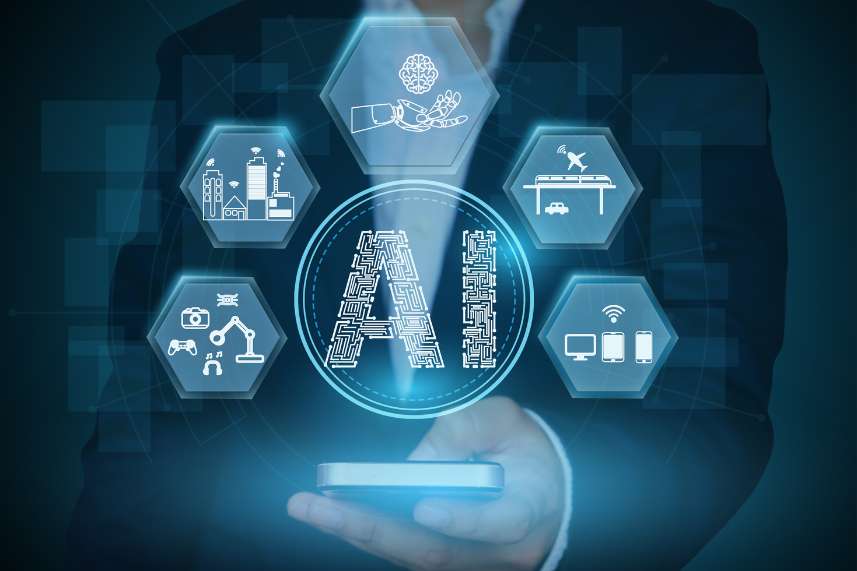Artificial Intelligence (AI) is no longer just a futuristic idea but an everyday reality. Since its inception in 1956 at the Dartmouth Conference, AI has evolved and become an indispensable tool in today’s world.
From futuristic ideas to everyday reality
One of the most notable cases of AI in our homes is virtual assistants. These intelligent systems, capable of recognizing and responding to our requests, have undergone spectacular technological development. Automation in our homes has become commonplace, from lights that turn on automatically to machines that detect and filter air pollution.
Transformative entity
AI has the potential to transform various aspects of our lives and economies shortly. In healthcare, AI systems are being developed that can analyze large amounts of medical data to improve diagnoses and discover relevant medical patterns. In transport, the aim is to improve traffic safety and efficiency, while in the manufacturing sector, ‘smart factories’ are using collaborative augmented reality technologies to improve job satisfaction. In agriculture and food, AI can contribute to a more sustainable and healthy system by reducing the use of fertilizers and pesticides, improving productivity, and minimizing environmental impact.
A wide range of applications and technologies
- Intelligent Software: Virtual assistants, search engines, voice and face recognition systems, and image analysis software are just a few examples of AI-powered intelligent software.
- Integrated Artificial Intelligence: Robots, drones, autonomous vehicles, and the Internet of Things are areas where AI is integrated to create intelligent, autonomous solutions.
- Online Shopping and Advertising: AI is used to deliver personalized recommendations to consumers based on their search history and online behaviors. This enables product optimization, inventory planning, and improved logistics processes.
- Web search: Search engines use AI to understand user queries and deliver relevant and accurate results.
- Personal Digital Assistants: Smartphones have widely adopted virtual assistants, which help us answer questions, provide recommendations and organize our daily routines.
- Machine Translations: AI-based translation software has significantly improved the accuracy and speed of written and spoken translations.
- Smart Homes, Cities, and Infrastructure: Smart thermostats learn from our behavior to save energy, while smart cities can regulate traffic to improve connectivity and reduce congestion.
- Vehicles: Although autonomous cars are not yet widely available, today’s vehicles use AI-powered safety features such as driver assistance systems.
- Cybersecurity: AI is used to identify and combat cyber-attacks and other online threats, recognize patterns, and prevent attacks.
- Fighting Disinformation: AI can help detect fake news and disinformation by analyzing social media data and assessing the credibility of online sources.
AI continues to evolve
With its ability to process vast amounts of data and learn from it, AI will continue to evolve and open up new opportunities in the future. This technology is here to stay and has revolutionized our lives across the board. From virtual assistants in our homes to improving healthcare and safety on our streets, AI has become a powerful tool driving innovation and progress in today’s society.
About AlgoNew
At AlgoNew, we add intelligence to your digital interactions so you can deliver a personalized and efficient experience to your customers. How do we do it? Through a combination of intelligent decision management, natural language processing, and advanced analytics.
We use algorithms to help you make informed decisions in real-time and improve the efficiency of your processes. In other words, we make sure that every action you take is based on relevant data and artificial intelligence, resulting in faster and more accurate decision-making.
Conversation management, on the other hand, refers to how you interact with your customers through digital platforms such as chatbots or virtual assistants. We use natural language processing technology to understand and respond to customer requests effectively and naturally. This means your customers can interact with digital systems in the same way they would with a human, which enhances the user experience.
Finally, we use advanced data analytics to gain valuable insights from your digital interactions. We analyze the data generated from your interactions to identify patterns and trends that can help you improve your business. This can include things like identifying common problems your customers have and how to solve them efficiently or identifying areas for improvement in your business processes.
This combination of intelligence that we offer at AlgoNew can help you significantly improve your digital interactions with customers. It helps you make informed, data-driven decisions, interact with them effectively and naturally, and gain valuable insights into your business processes.
All leads to a better customer experience and greater business efficiency!






